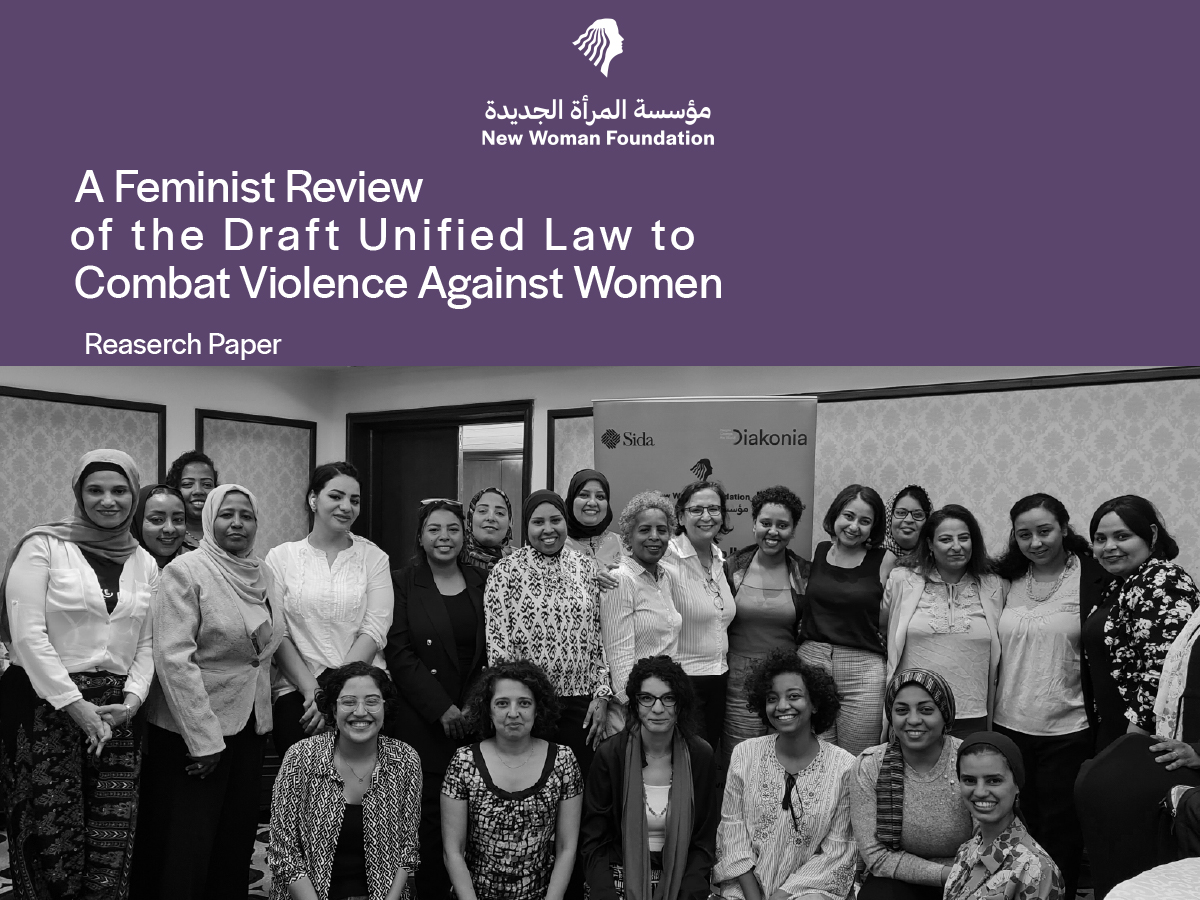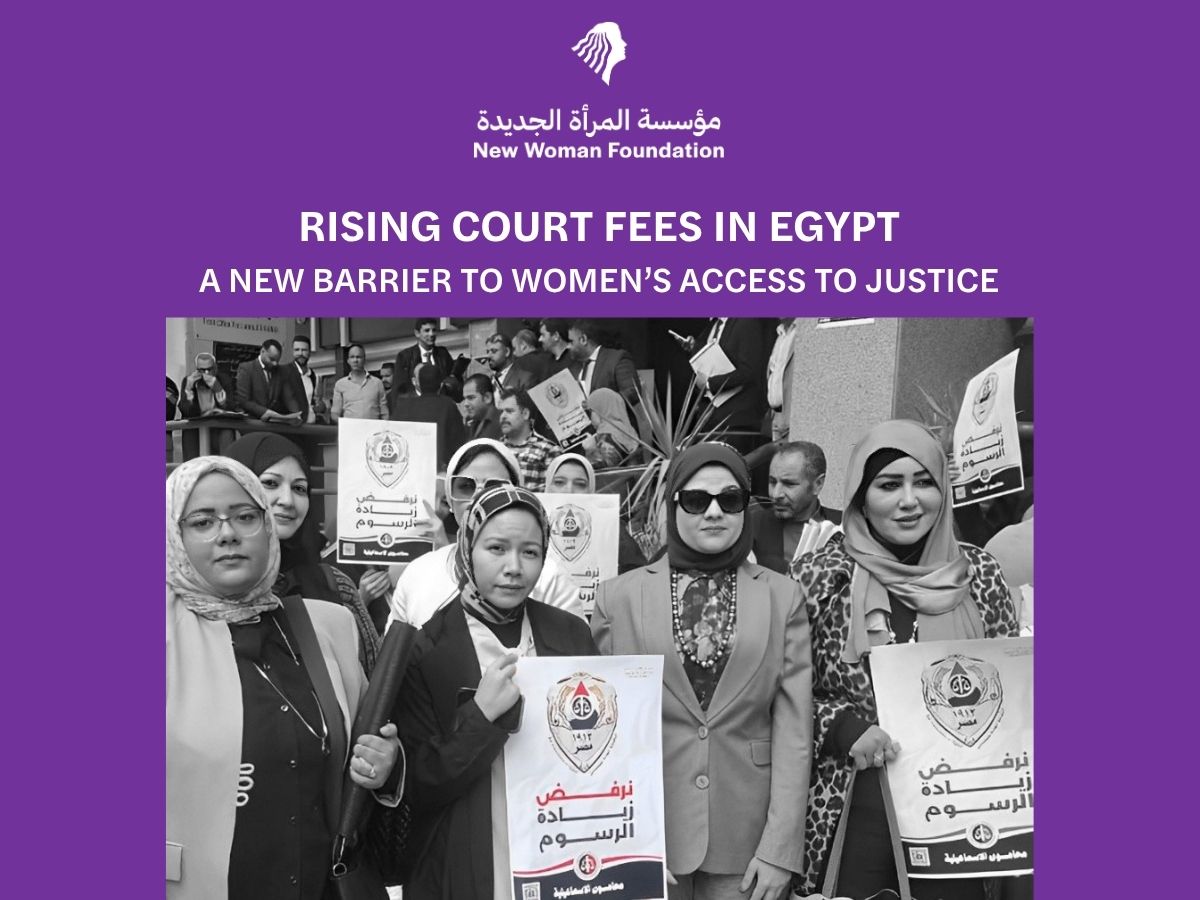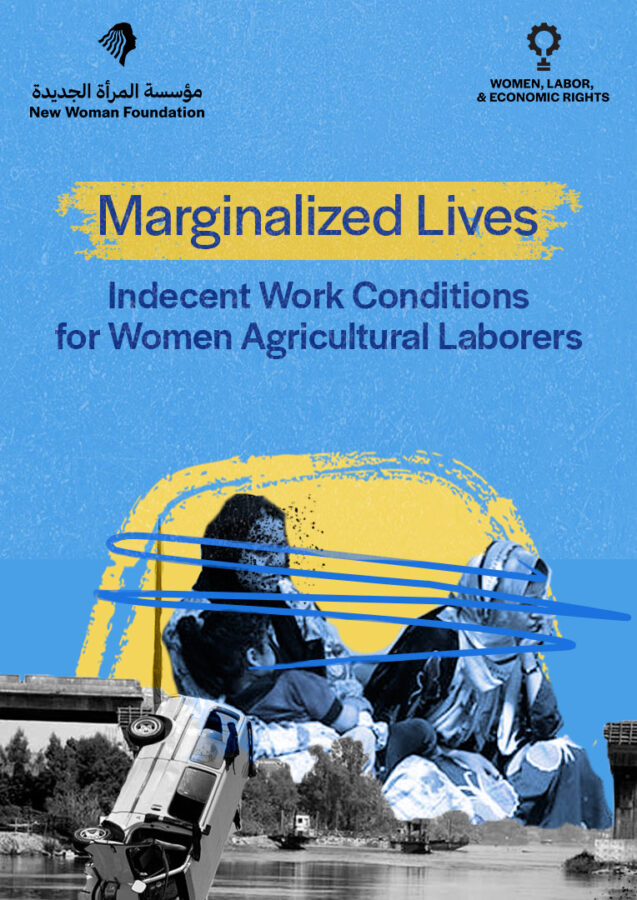- Contact Us
- 0020233382706
- nwrc@nwrcegypt.org
A Feminist Review of the Draft Unified Law to Combat Violence Against Women
A Feminist Review of the Draft Unified Law to Combat Violence Against Women
Abstract
The paper begins by highlighting the urgent need for a unified law, emphasizing the importance of establishing a coherent legislative framework that facilitates alignment between the justice system and the judiciary in confronting violence. Such a law would help end impunity and be rooted in human rights and civil and feminist values that reinforce the rule of law and deepen Egypt’s commitment to gender equality following the constitution and international obligations.
In this context, the paper provides a historical overview of the Egyptian feminist movement’s efforts to reform the legislative system to enable women to access their human dignity from a feminist and gender-sensitive perspective. This journey has seen several stages, including the New Woman Foundation’s late 1990s initiative to form a task force against sexual harassment.
This initiative contributed to incorporating six articles into the penal code criminalizing harassment, stalking, and related offenses with fines and imprisonment.
In 2017, the Foundation called for establishing a coalition of feminist organizations, which later produced the draft unified law to combat violence against women. This law consists of 54 articles addressing various forms of violence, including marital rape, the right to safe abortion, the criminalization of so-called “honor crimes,” and protective measures such as shelters for survivors and legal protection orders.
Despite repeated efforts to submit the draft law to the House of Representatives—spearheaded by MPs Nadia Henry and Nashwa El-Deeb—it has yet to be discussed in a general parliamentary session. This delay exposes the political and legislative obstacles facing laws that aim for equity and equality for women. Although there is an apparent political reluctance to pass such a law, despite its alignment with constitutional, international, and sustainable development commitments, one cannot ignore the male-dominated grip—both societal and institutional—on legislative processes in Egypt. These processes often ignore gender dynamics and reduce justice to custodial punitive measures, neglecting preventive and societal dimensions.
The paper argues that the unified law must include necessities derived from women’s lived experiences as survivors of violence. The hope is that the continued advocacy around this draft law will result in an intersectional feminist law that not only criminalizes violence but also seeks to dismantle the structures that enable it. This would involve mandating state institutions—such as the Ministries of Health, Education, and Interior—to implement clear prevention, protection, and rehabilitation measures.
Significantly, the paper also highlights the Egyptian context in recent years, and more complex and brutal forms of violence have emerged—sometimes leading to suicide or public killings, such as in the cases of Naira Ashraf and Salma Bahgat. Other cases, such as those of Basant and Heidi, highlight the devastating impact of digital violence, including cyber blackmail, especially in rural areas where reporting such crimes is even more difficult.
This compounded violence—culturally and legally supported—reveals the absence of adequate legal protection for women and underscores the need for legislation that prioritizes survivors within the criminal justice system rather than marginalizing them. The paper also touches on the regional context, examining similar efforts in Arab countries and parts of the Global South.
This paper is one of the outcomes of a meeting convened by the New Woman Foundation in April 2024. The meeting brought together a range of feminist organizations and individuals to discuss proposals and recommendations for developing the draft law and continuing the feminist movement’s accumulated efforts around it.
It approaches the concept of justice from a feminist perspective—one that does not end with punishment but includes acknowledgment of women’s suffering, as well as the provision of legal, psychological, and social support, and a cultural shift away from victim-blaming and violence justification.
Accordingly, the paper proposes that the unified law serves as a transformative framework, rethinking the relationship between women and the law, creating spaces for protection, support, and empowerment of women in accessing their rights.
In conclusion, the paper does not view the legislation as merely legal texts but as a vital tool for social change—a collective feminist voice demanding that society and state institutions prioritize women’s lives. Therefore, the law is not a luxury or an elitist demand but a fundamental human entitlement to ensure women’s dignity, rights, and safety in Egypt.
The paper stresses the necessity of a law that places survivors at the core of justice and fairness and redefines the relationship between women and state institutions—particularly the justice system—so that it is based on protection, equality, and dignity.
Finally, the New Woman Foundation calls on all sectors concerned with the legislative system’s role in combating violence against women—including political parties, feminist organizations, and members of parliament—to open diverse channels of dialogue about the draft law, explore avenues for its adoption by parliament, and ensure that the law adheres to the feminist and human rights principles upon which this study is based, thereby guaranteeing its effectiveness in achieving gender justice and protecting women from violence.




